By Jorge Barrera
APTN National News
Her father was a preacher and she says she believes in God.
And she swears she’s telling the truth about the guns.
Juanita Cree, 48, says she smuggled two Arizona-bought guns into Canada and planted them in the house of her former boss, a Lebanese-born Canadian citizen named Michael Chamas, 47, who is now a fugitive.
“I brought the guns…into Canada,” said Cree, whose Mohawk father was a Pentecostal preacher in Akwesasne. “I put them there.”
A Quebec judge issued a warrant for Chamas’ arrest after he skipped a court date on Oct. 19. Chamas is facing trial on nine weapons charges stemming from the two Arizona-bought guns police found in his Lorraine, Que., home on March 26, 2008.
Police raided his home as part of Operation Cancun, which targeted a drug smuggling network operating out of Kahnawake and Akwesanse that brought Quebec-grown marijuana into the U.S.
Chamas claimed he couldn’t show up for court because he was sick, but the RCMP discovered he had been traveling the globe, including a stop in Mexico where he is involved in a bid to revive Mexicana Air, Mexico’s oldest airline that went bankrupt in 2010.
Police suspected Chamas was the “banker” for the cross-border marijuana smuggling organization.
Chamas denies this, saying he didn’t know police believed some of the individuals he was linked to were allegedly involved in laundering money from marijuana smuggling.
Cree says she planted the guns in Chamas’ house at the suggestion of a Surete du Quebec sergeant, who was with the Aboriginal policing unit.
The officer could not be reached for comment. When APTN National News phoned his last known office, one officer said he was on leave, while another said he had been transferred from the unit.
The guns, however are only part of Cree’s story.
She says she also worked as an informant in Kanesetake, the Mohawk community at the centre of the 1990 Oka crisis, for the Surete du Quebec (SQ) and the RCMP.
She claims these things in a sworn affidavit, now sealed but available for download on Michael Chamas’ website, that was filed this past May into Chamas’ court case.
None of the claims in the affidavit have been proven in court.
With Chamas on the run, it may take some time before Cree is ever challenged about her assertions on the witness stand.
To this point, Cree has not been subpoenaed to testify.
The RCMP said they could not comment on Cree’s claims.
“There is a sealing order in place on this matter, so the RCMP cannot confirm or deny the allegations made by Ms. Cree,” said RCMP Cpl. Carine Cordey. “We don’t want to jeopardize anything that is going on right now that could be before the courts.”
The Surete du Quebec also said they could not comment on the matter.
The Crown prosecutor, Danny Lemieux, who works for a special unit created to deal with cases involving the proceeds of organized crime, refused to comment on an ongoing case.
APTN National News has learned that the prosecution was prepared to challenge the credibility of her statements in the affidavit and was prepared to call SQ officers as witnesses against her if the defence attempted to use Cree’s explosive claims.
It’s also believed that the prosecution was prepared to argue that Cree was never technically an informant, but did supply information to the police.
The prosecution was prepared to say that the SQ officer Cree says recruited her to become an informant may have been “playing his own game,” according to a source with knowledge of the file.
The former officer, Daniel Beaudry, was the police force’s liaison officer in Kanesetake. He could not be reached for comment.
Beaudry was disciplined over ties to Chamas while the businessman was under criminal investigation, according to a letter of reprimand from Feb. 8, 2006.
The letter of reprimand.
Cree maintains she was recruited by Beaudry to become an informant for the SQ between 1994 and 2000. She said she signed a contract with Beaudry and was given a “Confidential Informant” number along with a pager.
Cree said relationship with the SQ lasted between 1994 and 2000.
“I was trying to help them to gain information that was relevant to some of the operations they were trying to undertake,” said Cree.
No money was paid directly for the information she provided, she said.
The money moved through separate contracts with Quebec’s justice department for setting up meetings with prominent community members and police training programs, said Cree.
“They were cautious and careful about how they gave me money,” said Cree.
In one instance, Cree said she worked with the SQ in preparation for a drug operation in August 1995.
“They were gathering information via surveillance and most of it was aerial surveillance and we had these large (air surveillance) pictures of the reserve,” said Cree. “And they were asking me to identify who lived where and what was around, pockets of families and people who were in certain locations.”
The relationship with the RCMP, which started in 1995, was different.
Cree said she acted more as a consultant to the RCMP on policing in First Nations communities across Quebec.
“It was how to approach communities, how to make a difference in community policing aspects…They were very interested in (Quebec’s) far north,” said Cree. “I actually flew on the RCMP commissioner’s plane…I spent time with their liaison officer going to different communities, looking at different training things, making connections…making sure they got in to speak to the right people.”
The RCMP also gave Cree grants to run sensitivity and cultural training programs for police officers and justice officials.
Cree said she eventually drifted away from the police and Kanesatake and by 2000 had reinvented herself in the business world.
She became heavily involved in a project to create a free-trade zone at Montreal’s Mirabel airport. Free-trade zones allow goods to be imported, manufactured, reconfigured and then exported tax-free.
The free trade zone project ended in the fall of 2001 after Bombardier was allowed to build a hanger that encroached on one of the runways. The airport suddenly didn’t meet the regulations to handle the volume needed for a free-trade zone.
Cree said she met Chamas during a gala at the Sheraton related to the proposed free-trade zone.
“He was standing in the lobby of the Sheraton and he was very striking, very tall,” said Cree.
Chamas wanted in on the free-trade zone and Cree said he had lined up about $50 million worth of investments from China before the project fell through.
A self-styled high-flying, international financier, it appears Chamas has business links all over the world; from China, to Switzerland, to Dubai to Venezuela.
Chamas has also been the subject of police investigation in two other countries: Switzerland and France.
Before becoming a fugitive in Canada, Chamas was gaining altitude. He was attending political fundraisers promising jobs, planning to buy a Quebec bank and promising to set up international construction deals in Dubai.
He projected the image of an international financier with limitless access to overseas capital and high-level international connections.
Yet, through most of it, he battled the tax man and eventually lost. Chamas had been fighting Revenue Canada in the courts before he fled the country.
Tax authorities put a $1.8 million lien on his luxury home in Lorrain which has since been seized and put on the market. He also owed $1.5 million to Quebec in taxes, according to court records.
Tax authorities also seized his $200,000 Rolls Royce and over $700,000 from two CIBC bank accounts, according to court records.
Chamas, who obtained his Canadian citizenship in 1995, said he didn’t owe tax authorities any money because he maintained his residency overseas where he conducted the majority of his business.
Tax authorities and the courts disagreed.
But it was his relationship with Cree, who was his personal assistant on his North American dealings, which offered him the biggest prize: access to the Conservative government.
Cree was a close associate of David Bernstein, a Montreal bankruptcy lawyer and former Tory candidate who ran unsuccessfully against former Independent Senator and Liberal MP Marcel Prud’Homme in 1976, 1979 and 1980.
Bernstein was friends with John Crosbie, a former Tory cabinet minister in the Brian Mulroney government and current lieutenant-governor of Newfoundland and Labrador.
Bernstein was also close to John Reynolds, a former Tory and Reform MP who chaired Prime Minister Stephen Harper’s Conservative Party leadership bid in 2004 and he chaired the Conservative’s federal campaign in 2006.
Both men are mentioned in Bernstein’s obituary, along with Jerome Choquette, who was the minister of justice for the Quebec Liberal government of Robert Bourassa during the October crisis in the 1970s.
Chamas, through Cree, began forming a business relationship with Bernstein who believed the self-styled international financier could raise $1.5 billion in capital for the purchase of the Laurentian Bank in Quebec.
Everything, however, came crashing down on Chamas on March 26, 2008, when RCMP and SQ police officers with the Aboriginal Combined Forces Special Enforcement Unit executed a search warrant at his home in Lorraine, just north of Montreal.
The RCMP had traced a $1 million transfer into one of Chamas’ account from individuals investigators believed were laundering money for a cross-border smuggling network operating out of the Mohawk communities of Kahnawake and Akwesasne.
Chamas said the transfer was for money he was owed.
Revenue Canada and immigration officials were also present during the raid, which was part of Operation Cancun, an investigation aimed at dismantling the drug network which moved Quebec-produced marijuana to New York City.
The RCMP’s Integrated Proceeds of Crime Unit was also involved in the Cancun investigation and targeted the suspected money players, including Chamas and one of his associates named Nicolas Anthis.
Investigators found two Arizona-bought guns when they searched Chamas’ house in Lorraine, just north of Montreal.
One was a Taurus .38 calibre hand-gun bought at the Cash Box Jewellery & Pawn Co. in Tucson, Az., on Feb. 13, 2008, according to a gun trace supplied to the RCMP by the U.S. Bureau of Alcohol, Tobacco, Firearms and Explosives.
The other gun was a Glock .40 calibre bought at Sportsman’s Warehouse in the same city on the same day, according to the gun trace.
The gun trace.
Chamas was charged with nine weapons offences in connection with the guns. None of the offences included gun smuggling.
“Those guns, that wasn’t him. That was me,” said Cree, who also had her phone tapped and was under surveillance during the Cancun investigation.
Cree says she used Chamas’ birthday as cover to plant the guns.
Cree said she phoned Chamas, who was born on Feb. 9, to tell him she had a belated birthday present for him. She carried the guns inside a bag with the present, a magnetized globe.
She said she planted the .38 in a basement closet while Chamas showed her some renovations she had done to his home theatre section.
Under the pretext of wanting to see newly bought baby furniture in the adjacent room, Cree said she slipped the Glock into the inside pocket of one of this suit jackets hanging in the master bedroom closet.
Police found the guns in those locations.
Cree said she planted the guns on either March 12 or 13, two weeks before the raid.
The proximity between the dates she says she planted the guns and the raids was pure coincidence, said Cree. She said she was not told about the looming raid or tip police about the guns.
Cree, however, stayed in contact with Chamas after she says she planted the guns.
“I wasn’t working directly with him,” said Cree. “After Cancun hit, he distanced himself from me…some of the associates around him kept telling him I was working for the police.”
Cree, however, admits that as time passed, she again entered into Chamas’ sphere and finally told him in April over a lunch of steak and grilled chicken Cesar salad that she planted the guns. She said a glass of wine spilled.
The continued relationship, however, raises the possibility that Chamas made a deal with Cree to file the affidavit and claim the guns were planted.
They had worked together for several years and she had intimate knowledge of many of his business dealings.
If Chamas went down, he could also take Cree with him.
Cree’s affidavit gave Chamas a golden ticket to beat the weapons charges.
Cree denies there was any deal.
“He never paid me to do a deal for him or to take this or do anything. None of that,” said Cree.
Chamas, in a separate interview, also denied there was a deal and used a vulgar term to describe Cree.
“Are you out of your mind…that bitch, she ruined my life, why would I pay her?” he said.
Cree said she arranged for the guns to be bought legally by a nephew. She then smuggled them into Canada.
APTN National News traced the name of the individual whose driver’s license was used to buy the guns, but could not reach him for comment.
APTN National News did reach the individual’s former partner, who is Cree’s niece, and she said he did buy guns for a family member, but she wasn’t sure about the date.
“If the ATF comes to me and charges me, okay, I have to take responsibility for that. It was me. I don’t want them to go and find another scapegoat and say it was somebody else or whatever,” said Cree. “It was me. Am I running away from it? No.”
Police seized hundreds of documents from Chamas when they raided his house, including an application for an Arizona driver’s licence.
Cree says the application had nothing to do with the purchase of the guns.
Chamas said he lived in Arizona in the 1980s after he came to North America from Lebanon for the first time.
Cree said the decision to plant the guns began during a meeting in November 2007 with the SQ officer who spoke about Beaudry and Chamas.
“He talked to me about who he was, that he was working in Aboriginal policing, (and) he said I know you, you have a reputation here,” said Cree.
“(The officer) then stated that it would be better to take them all down,” her affidavit states. “He suggested this using the example of illegal weapons being discovered at the residences of individuals.”
Cree said she had other conversations with her acquaintances that also pushed her toward the decision to plant the weapons.
“I remember having a conversation with (one lawyer) in his office and he said ‘are you sure you know who you are dealing with?'” said Cree. “He was really pressing in terms of ‘are you sure of these things? Are you sure of these facts? Are you sure you know who this person is?'”
But it was a conversation Cree had with Bernstein in January 2008 that finally convinced her to plant the guns.
“It was almost like Chamas’ money smelled,” said Cree. “(Bernstein) was told something…and started referring to (Chamas) in a very negative way.”
Cree said there were dark hints about financing terrorism.
Cree said she decided to come clean about the guns this past spring after talking with Bernstein who was dying in hospital from cancer.
Bernstein died in April.
“When he was lying in bed and talking about doing things that we were having a lot of regret for,” said Cree. “I knew he was dying and he was talking directly about Chamas. I could do nothing else but come forward with the truth.”
She says she just wants to clear her conscience.
“My responsibility is to take responsibility, to take accountability for what I had done,” said Cree. “Yes it is a matter of conscience.”
Cree says she is ready to face the consequences for committing the crimes of smuggling guns across an international border and using them to frame her former boss.
Now she waits.
“They are either going to say I am charged with something and get it over with or they are going to come out and call me a complete psycho,” said Cree.




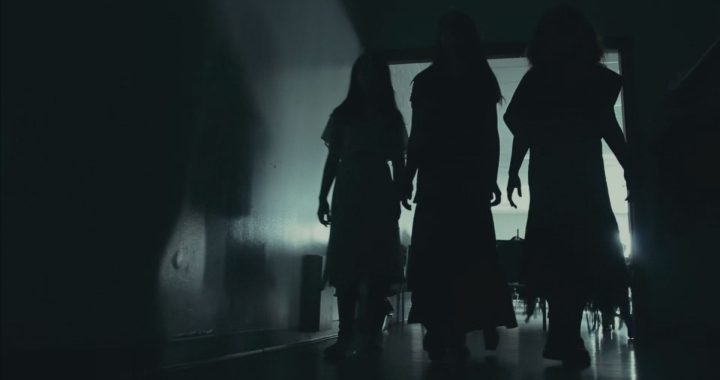

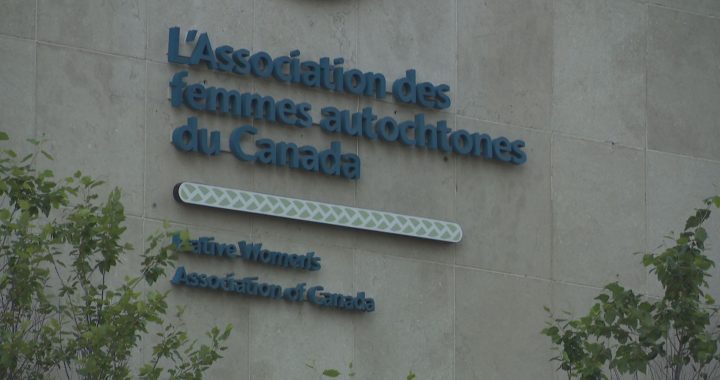
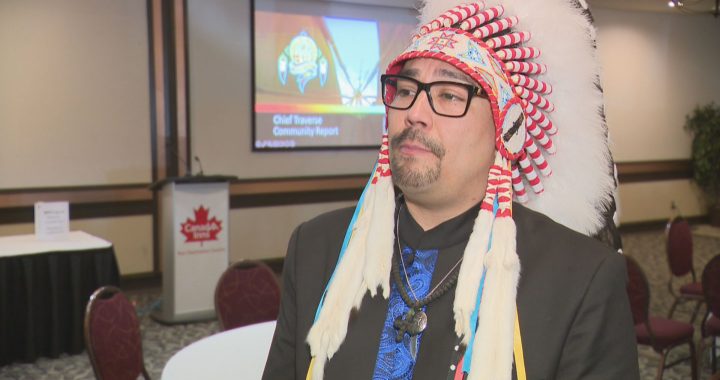
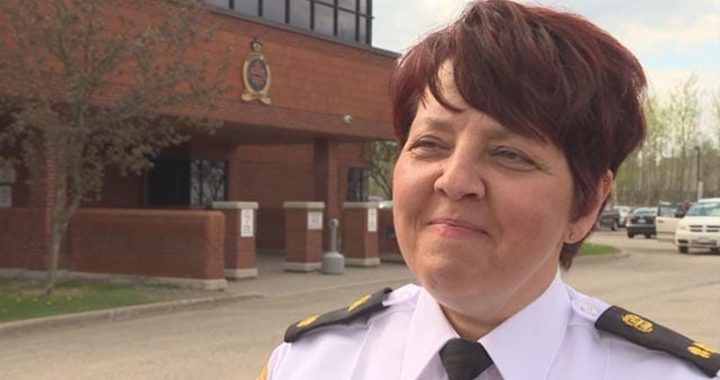
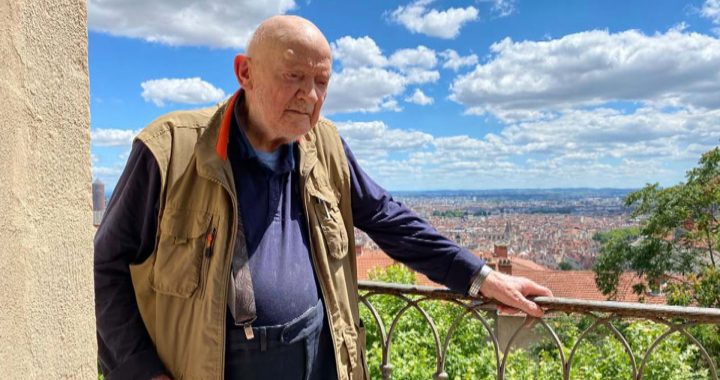
2 thoughts on “The part about the guns (I)”
Comments are closed.